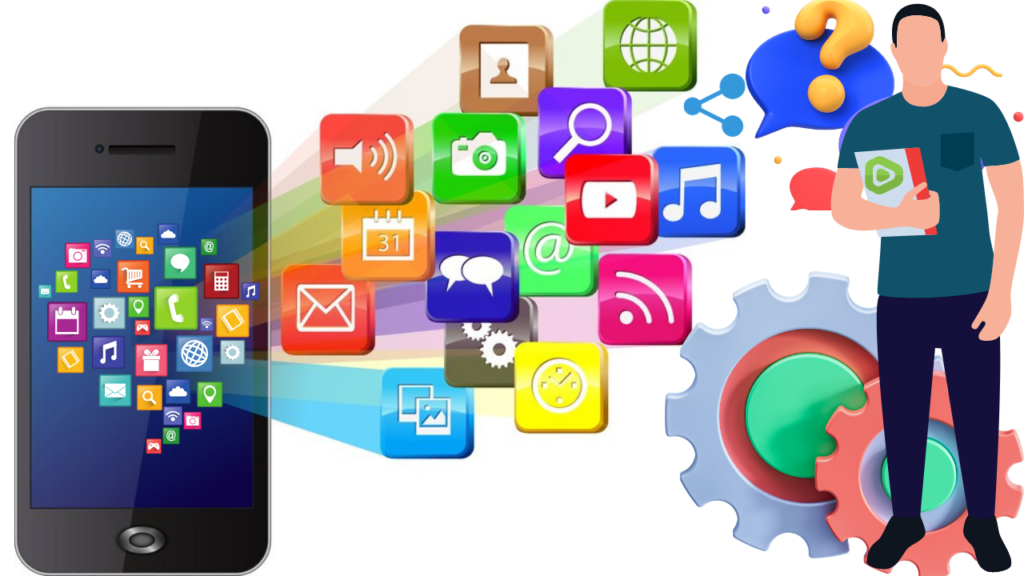
In today’s technology-driven world, understanding the backbone of a company is essential to grasp its role in the digital ecosystem. Whether it’s the technology stack, the apps they offer, or their intellectual property portfolio, these elements can provide deep insights into a company’s capabilities, potential for innovation, and market positioning.
It is a company that provides services in the software and application development space, has grown into an influential player in the industry. This article takes a deep dive into AppForDown‘s tech stack, the apps they offer, and their approach to protecting their innovations through patents and trademarks.
Understanding AppForDown: A Brief Overview
Before diving into the specifics of AppForDown’s tech stack, apps, and intellectual property, it’s important to first understand the company. AppForDown, established in recent years, has made a name for itself by offering a range of software solutions and services. Known for its user-friendly products and seamless integration with various platforms, the company has garnered attention from both users and investors.
The company’s core offerings typically center around mobile applications, web platforms, and software-as-a-service (SaaS) solutions. AppForDown’s mission is to create products that cater to businesses and individual users, simplifying complex processes and providing a higher level of accessibility to technology.
AppForDown’s commitment to innovation and quality customer experiences has made it a rising star in the tech industry. By leveraging a solid tech stack and ensuring their apps are secure, efficient, and scalable, AppForDown has created a strong foundation for long-term success.
Tech Stack: The Building Blocks of AppForDown’s Products

A tech stack refers to the combination of technologies used by a company to build its products, from the backend servers to the frontend user interface. For any company, especially those focused on software development, selecting the right technologies is crucial to ensure scalability, performance, security, and user experience.
For AppForDown, the company utilizes a robust tech stack that blends modern tools and technologies to build and deliver high-performance applications. While specific details of their stack may evolve over time, typical components of a company like AppForDown might include:
1. Frontend Technologies
The frontend of an application refers to the part that users interact with directly. It is responsible for delivering a smooth, responsive user interface (UI) and user experience (UX). The frontend tech stack is critical for ensuring that users enjoy a seamless and intuitive experience.
AppForDown’s frontend stack likely includes popular JavaScript frameworks such as:
React.js or Vue.js: These frameworks allow for the creation of dynamic, single-page applications (SPAs) that load quickly and offer a more interactive experience.
HTML5 and CSS3: The foundation of web design and styling, HTML5 and CSS3 enable the structure and visual appeal of websites and apps.
Angular.js: Another front-end JavaScript framework, Angular is often used in large-scale applications due to its robustness and support for complex features.
In addition to these, AppForDown may also use other technologies such as SASS for scalable styling, Webpack for bundling resources, and Bootstrap for responsive design.
2. Backend Technologies
The backend is the part of the application that handles data processing, storage, and server-side logic. It is responsible for making the frontend functionality work by fetching data from databases, managing user authentication, and ensuring that everything operates smoothly in the background.
A company like AppForDown would likely use some of the following backend technologies:
Node.js: This JavaScript runtime allows developers to write server-side code in JavaScript, making it easier for teams to use the same language across the full stack. Node.js is known for its scalability and speed, making it ideal for handling multiple requests simultaneously.
Python (Django or Flask): Python is a versatile language, and frameworks like Django or Flask are widely used in web development. They enable rapid development and scalability, and Python’s extensive libraries can support a variety of applications.
Ruby on Rails: A powerful web framework for building robust applications, Ruby on Rails is known for its convention-over-configuration philosophy and allows for quick iteration.
Java (Spring Boot): Java remains one of the most popular backend programming languages for enterprise-level applications. Spring Boot simplifies Java development, making it easier to create stand-alone, production-grade applications.
These technologies, combined with cloud infrastructure services like AWS, Google Cloud, or Microsoft Azure, provide the backend for AppForDown’s applications, ensuring reliability, performance, and scalability.
3. Databases and Data Management
A solid database architecture is essential for managing the data that powers any application. Whether it’s user data, transactional data, or content management, the database is the heart of an application’s operations.
AppForDown may use the following database technologies:
MySQL or PostgreSQL: Both of these relational database management systems (RDBMS) are popular for their reliability and support for complex queries and transactions.
MongoDB: As a NoSQL database, MongoDB is often chosen for applications that require flexibility in data models and scalability.
Redis: Used for caching, Redis speeds up applications by storing frequently requested data in-memory.
Firebase: A cloud-based database service, Firebase offers real-time data synchronization, which is particularly useful for mobile and web apps that require constant updates.
4. Mobile App Development
For companies like AppForDown that focus on creating mobile applications, technologies such as React Native or Flutter might be employed. These cross-platform frameworks allow for the development of applications that can run on both iOS and Android devices, reducing development time and costs.
React Native: Developed by Facebook, React Native allows developers to use the same codebase for both iOS and Android platforms, while still providing native-like performance.
Flutter: Created by Google, Flutter is another cross-platform framework known for its performance and customization options. It enables a rich, high-quality UI experience on both platforms.
5. Security and Authentication
Security is a major priority in today’s tech landscape. AppForDown likely implements various technologies to ensure that user data and app functionality remain secure. Some of these technologies might include:
OAuth: This open standard for access delegation allows users to grant third-party services limited access to their accounts without exposing their passwords.
SSL/TLS Encryption: These protocols ensure that data exchanged between a client and server remains encrypted and secure during transit.
JWT (JSON Web Tokens): Used for securely transmitting information between parties, JWTs can be used for authentication and information exchange.
Apps: The Core Offerings of AppForDown

AppForDown is likely focused on delivering applications that cater to a wide range of needs, from mobile solutions to SaaS products. Below are some possible types of apps and services that the company might provide:
1. Productivity Tools
These tools could include project management, time-tracking, and task management apps that help businesses and individuals stay organized and efficient. Apps like Trello, Asana, or Slack have set the bar for productivity apps, and AppForDown may offer similar solutions tailored to niche markets.
2. Collaboration and Communication Apps
With the rise of remote work, communication and collaboration platforms have seen exponential growth. It might offer apps that enable real-time communication, file sharing, and collaboration across teams and businesses.
3. Utility Apps
These apps might focus on improving the overall functionality of mobile and desktop devices. Utility apps can range from data management tools to security apps, allowing users to optimize their devices and increase performance.
4. E-commerce and Marketplace Platforms
E-commerce continues to grow, and it may offer software solutions for businesses that need an online presence. These apps could include features like payment gateways, product listings, inventory management, and analytics.
5. Educational Platforms
Online learning has seen a surge, and it might be developing apps in this space. These apps could include online courses, video lectures, and interactive content to help users learn new skills and certifications.
Patents and Trademarks: Protecting Innovation

As it continues to innovate and create valuable intellectual property, protecting these assets is essential. Patents and trademarks are vital tools in safeguarding innovations from imitation and ensuring a company retains exclusive rights to its inventions and branding.
1. Patents
It may file patents for the unique technologies or methods they develop, such as novel algorithms, systems, or software solutions. Patents protect these innovations for a set period of time, giving it the right to exclude others from using or reproducing these inventions without permission.
2. Trademarks
Trademarks protect a company’s brand identity, including logos, names, slogans, and other symbols. AppForDown is likely to trademark its company name, product names, and logos to ensure that customers can easily recognize and distinguish their products from competitors.
By securing patents and trademarks, it can foster trust with its users, investors, and partners, knowing that its intellectual property is legally protected.
Conclusion
It is a dynamic company that leverages modern technologies to provide innovative software solutions across various sectors. By utilizing a sophisticated tech stack that includes powerful frontend and backend tools, databases, and mobile development technologies, it delivers high-quality applications that are secure, scalable, and user-friendly.
In addition to their cutting-edge products, AppForDown’s commitment to intellectual property protection through patents and trademarks ensures that their innovations remain secure in a competitive landscape.
As the company continues to expand its reach and impact, the combination of its robust tech stack, diverse range of apps, and strong intellectual property portfolio will likely drive its success for years to come. Whether in productivity, communication, e-commerce, or other niches, it is well-positioned to make a lasting impact on the digital world.


